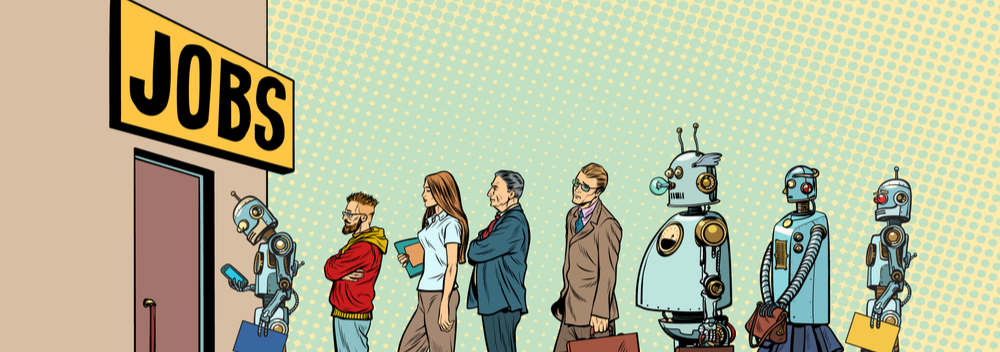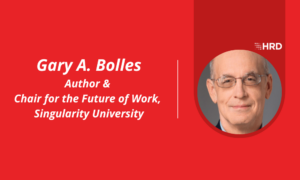The future of work – four trends for leaders to prioritize
- 5 Min Read
As technology disrupts the HR landscape, and a new generation shakes up the way we work, the traditional workplace bears little resemblance to the places of work we knew just a few years ago. And it continues to change before our very eyes.
- Author: Stephanie Kelly
- Date published: Aug 16, 2019
- Categories

Is there scope for us all to be part of a happier, more productive workplace? Stephanie Kelly, chief people officer at IRIS Software Group, shares the views of the future trends of the workplace.
To help bring organisations on board with this change, people managers need to take stock of the key trends having an impact on today’s workplace.
It’s not all about the money
For many socially aware millennials, the paycheque is only part of the deal. Younger employees increasingly seek a wider sense of purpose from their jobs, and want to feel they are making a contribution to something of value.
Our panel of experts suggested senior leaders need to create and disseminate a shared understanding of their organisation’s ethos. By giving employees an emotional stake in the business, leaders see their people thrive and grow.
Jeff Wellstead, consulting partner at FutureXeed urges organisations to think beyond the traditional pay equals performance maxim. “We must get out of the old-school thinking that says, “You’re getting a fair paycheque, so produce great things!” This simplistic equation no longer reflects today’s more complex relationship between employer and employed.”
Wellbeing expert and founder of PiP To Grow Strong, Natasha McCreesh agrees. “Happiness will come only if people feel they are doing something of value. Fortunately, more and more businesses are seeking to have a positive social impact, not just through their corporate social responsibility activities but in the very nature of what they do.”
The demise of the traditional job role
As employees start to look beyond their salaries, they are also thinking outside the box about their roles. The panel is witnessing a move from the old-style job description towards more outcome-based roles which encourages working across functions rather than within them.
Natasha McCreesh explains. “Historically, you had a silo role with a tight job description and carried out the tasks A, B, C. Now, because of the tools available and being able to connect with people remotely, we can actually start to work more to outcomes and goals.
“This has the added benefit of giving people a stronger sense of purpose, rather than working through a daily checklist of tasks attached to a rigid job description.”
One of the positive trends which has accompanied this more flexible approach is remote working. However, it’s important that people managers avoid the pitfalls and ensure people don’t feel isolated when they work away from their colleagues.
Joanna Graham, HR officer at international law firm Trowers & Hamlins LLP says, “As the 9-5 culture disappears, my advice is to ensure remote workers are given top priority and given all the tools they need for frictionless communications.”
A new wave of technology
In any workplace, there’s a range of attitudes towards technologically enabled change. And these need managing sensitively. Employees should be able to share their ideas, and also be open to suggestions when there’s room for improvement.
Some employees may resist the transition from paper-based systems to digital, but with training and upskilling, their understanding of the benefits of technology will grow.
In contrast, as a new generation of digital natives enters the workplace, they may be used to finding answers at the touch of a smartphone. So when their employer’s technology is not as advanced as the devices and apps they use every day, employees can feel disempowered.
It’s an issue Jeff Wellstead recognises. “We are in the age of consumerisation of the workplace – where the workplace is now the laggard when it comes to digital tooling. If a company’s technology is five years behind, employees feel the business doesn’t care about keeping up or trying new ideas – and that’s where resentment can build.”
One way HR managers can help is to get the leadership on side with evidence of IT boosting productivity and driving efficiency, as well as helping to recruit and retain good people.
The rise of the robot
In past decades, predictions pointed to a shorter working week. However, the opposite seems to be happening, where the work/life balance is blurred and an ‘always on duty’ mentality prevails.
However, technology has the power to enable more flexibility in our working lives, if we work with it, not against it. And many of the fears employees have about AI in the workplace should prove unfounded.
Jeff Wellstead foresees a new dimension to robotics which will fit in better with people’s working patterns, enabling people to work alongside systems. Employees’ creativity can flourish, while the AI captures the data and makes our working lives easier, and better.
“This way, another stress trigger is eliminated, as employees can’t stay ‘in the zone’. You never have to make people come to a halt or interrupt the flow of work to record the metrics.”
In the age of digital transformation, HR practitioners can play an important part in shaping the future of work. By grasping new opportunities, engaging the next generation of workers and working smarter with technology, our workplaces can become happier, more creative and productive.









